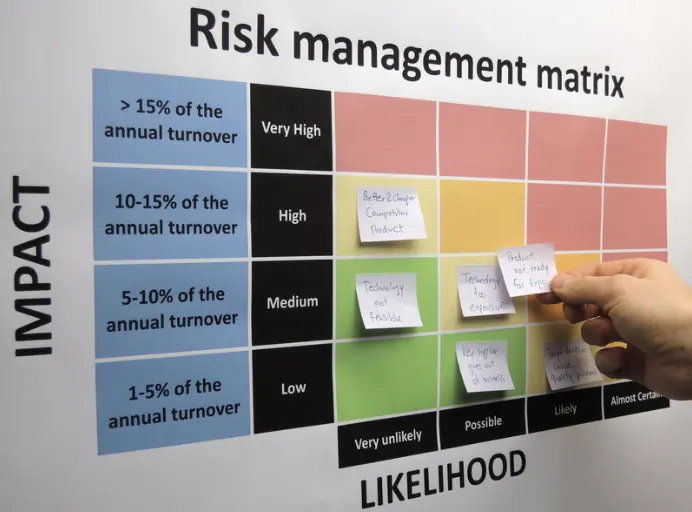“Risk management is not about avoiding risk; it’s about managing risk.”
Walter Wriston
Compliance management software is essential for businesses to navigate the complex landscape of regulatory requirements. However, effectively managing risk within these frameworks remains a significant challenge. This article explores how AI-enhanced compliance management software can improve risk management, examining the complexities involved, technological solutions, and broader business implications.
The Complexity of Risk Management

Risk management in compliance involves identifying, assessing, and mitigating risks that could lead to non-compliance with regulations. The increasing volume and complexity of regulations across industries make this task particularly challenging. According to Deloitte, the cost of compliance is rising, with financial institutions alone spending over $270 billion annually on compliance and regulatory obligations.
The primary challenges in managing compliance-related risks include keeping up with constantly evolving regulations, accurately assessing risk levels, and implementing effective mitigation strategies. A report by McKinsey indicates that 59% of companies struggle with integrating risk management processes into their compliance programs, leading to gaps in risk identification and mitigation.
AI Solutions for Risk Management

Artificial Intelligence provides advanced tools to enhance risk management in compliance management software. One significant advancement is the use of AI for predictive analytics. AI algorithms can analyze historical data and identify patterns that may indicate potential compliance risks. By predicting future risks, businesses can proactively address issues before they escalate. For example, AI can identify unusual transaction patterns that may suggest money laundering activities, enabling early intervention.
Machine learning models play a crucial role in risk assessment. These models can analyze vast amounts of data to evaluate risk levels more accurately and efficiently than traditional methods. For instance, AI can assess the risk associated with third-party vendors by analyzing their compliance history, financial stability, and other relevant factors. According to a study by PwC, companies that implement AI-driven risk assessment see a 30% improvement in risk detection and mitigation.
Natural Language Processing (NLP) further enhances risk management by analyzing unstructured data, such as regulatory texts, audit reports, and internal communications. NLP can extract relevant information and convert it into structured data, ensuring that all compliance-related information is accurately captured and analyzed. This comprehensive approach helps businesses stay updated with regulatory changes and identify potential compliance risks.
Practical Implementations and Business Benefits

Several advanced compliance management platforms leverage AI to enhance risk management. For example, the MetricStream platform uses AI-driven risk assessment and predictive analytics to identify and mitigate compliance risks. The platform’s advanced algorithms analyze data in real-time, providing businesses with actionable insights and recommendations for risk management.
Another example is the IBM OpenPages platform, which employs AI to enhance risk assessment and management processes. IBM OpenPages uses machine learning models to analyze data and identify potential risks, enabling businesses to implement effective risk mitigation strategies. This AI-driven approach helps organizations maintain compliance and avoid costly regulatory penalties.
In addition to improving risk management, AI-enhanced compliance management software offers several other benefits. These include increased efficiency, reduced compliance costs, and improved decision-making. By automating routine compliance tasks, businesses can free up resources to focus on strategic initiatives. Furthermore, AI-driven insights enable businesses to make informed decisions based on real-time data, enhancing overall compliance and risk management processes.
Conclusion

Effective risk management is crucial for maintaining compliance in today’s complex regulatory environment. AI-enhanced compliance management software provides advanced tools to identify, assess, and mitigate compliance-related risks. By leveraging predictive analytics, machine learning, and natural language processing, businesses can proactively address potential risks and maintain regulatory compliance. As the regulatory landscape continues to evolve, AI-driven compliance management software will play an increasingly important role in helping businesses navigate these challenges.
Incorporating AI into compliance management not only enhances risk management but also offers broader business benefits, including increased efficiency and reduced compliance costs. As such, businesses should consider integrating AI-driven compliance management solutions to stay ahead in an ever-changing regulatory environment.


